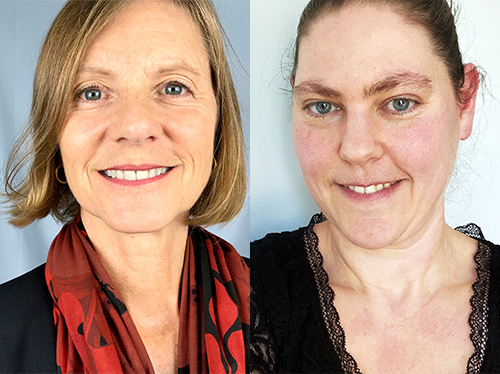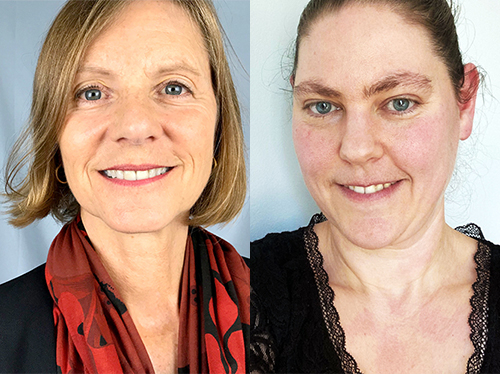
Demystifying the Car Seat Tolerance Screening
Healthcare professionals play an important role in promoting the safety of neonates during motor vehicle travel. Properly securing neonates in age- and size- appropriate car seats reduces the risk of serious injury or death from a motor vehicle crash, yet research and field data show most infants and children are incorrectly secured in their car seats. Additionally, screening fragile infants for positioning and tolerance in their car seat reduces the risk of cardiorespiratory compromise. However, research demonstrates that although the American Academy of Pediatrics continues to recommend that at-risk infants be monitored for tolerance in an appropriate car seat or car bed, knowledge, policies, and practices vary widely between healthcare institutions. In light of these concerns, this presentation will review the rationale behind the recommendation to complete a Car Seat Tolerance Screening (CSTS) and discuss common misconceptions about the process and results. Additionally, the steps to set up and conduct a CSTS will be discussed, including a focus on proper harnessing and positioning of the neonate. Finally, the scope of practice of the provider, the bedside nurse, and the hospital’s Child Passenger Safety Technician will be explored.
This presentation was originally offered at our GOLD Neonatal Online Conference 2023.


Heidi Heflin RN, MN, CPSTI became a Child Passenger Safety (CPS) Technician in 2013, then an instructor with training in transportation of children with disabilities and school bus transportation. A year later, she established the CPS exhibit at the American Academy of Pediatric Conference for >10,000 attendees seen annually since. She instantly saw the need to combine her experiences by advising, educating, and advocating for nurses in CPS, leading to national, then international presentations. In 2018, she relaunched CPS-In-Healthcare Google group to support hospitals without CPS staff. She’s written for NANN E-News for neonatal nurses and CPS Express for CPSTs. In 2021, she joined the Association for the Advancement of Automotive Medicine and is revising their child restraint policy. She was named a Kidz in Motion ‘CPS Hero’ 2019, 2022, and was a recipient of the SafetyBeltSafe U.S.A. 2022 Siegel Child Safety Restraint Award. Her research examining neonatal nurses’ CPS knowledge and practice is pending publication. Heidi ‘s fervor is for working with CPS pioneers in lower- and middle-income countries. Her favorite work is with CPS Malaysia especially when she met with the Director of the Road Safety Council in 2018. When not working, she cycles with friends, hikes with her dog Olive, or ocean-swims with dolphins.
Carrie Rhodes is the Passenger Safety Program Coordinator at Nationwide Children's Hospital in Columbus, Ohio. She is a Child Passenger Safety Technician-Instructor, Certified Health Education Specialist, and instructor for Safe Travel for All Children: Transporting Children with Special Healthcare Needs, and holds a Master of Transportation Safety Administration from Clemson University. In her role as Passenger Safety Program Coordinator, she focuses on facilitating safe transportation at the time of discharge for patients of all ages, from neonates to teens. Her work includes frequent assistance with car seat tolerance screenings across the hospital's neonatal intensive care units, working with families and clinical staff to achieve the correct balance between a neonate's cardiorespiratory safety and their protection in the event of a motor vehicle crash. She is passionate about ensuring NICU staff understand the importance of both neonate positioning and proper car seat use, as well as remaining abreast of the most currently available evidence to inform transportation decisions and practices.
1. Describe the rationale behind the Car Seat Tolerance Screening and common misconceptions about the process and results.
2. Describe the steps to set up and conduct a car seat tolerance screening, based on the standard of care in the United States.
3. Explain the scope of practice of the provider, bedside clinician, and Child Passenger Safety technician as it pertains to the car seat tolerance screening.
Healthcare professionals play an important role in promoting the safety of neonates during motor vehicle travel. Properly securing neonates in age- and size- appropriate car seats reduces the risk of serious injury or death from a motor vehicle crash, yet research and field data show most infants and children are incorrectly secured in their car seats. Additionally, screening fragile infants for positioning and tolerance in their car seat reduces the risk of cardiorespiratory compromise. However, research demonstrates that although the American Academy of Pediatrics continues to recommend that at-risk infants be monitored for tolerance in an appropriate car seat or car bed, knowledge, policies, and practices vary widely between healthcare institutions. In light of these concerns, this presentation will review the rationale behind the recommendation to complete a Car Seat Tolerance Screening (CSTS) and discuss common misconceptions about the process and results. Additionally, the steps to set up and conduct a CSTS will be discussed, including a focus on proper harnessing and positioning of the neonate. Finally, the scope of practice of the provider, the bedside nurse, and the hospital’s Child Passenger Safety Technician will be explored.
Accreditation
CERPs - Continuing Education Recognition Points
Applicable to IBCLC Lactation Consultants, Certified Lactation Consultants (CLCs), CBEs, CLE, Doulas & Birth Educators. GOLD Conferences has been designated as a Long Term Provider of CERPs by IBLCE--Approval #CLT114-07. This program is approved for 1 R-CERP.
CMEs - Continuing Medical Education Credits for Physicians & Nurses
The AAFP has reviewed the activity and deemed it acceptable for AAFP credit. Term of approval is from 05/30/2023 to 05/30/2024. Physicians should claim only the credit commensurate with the extent of their participation in the activity. This activity is approved for 1 AAFP Prescribed CME credit.
Nursing CEUs - Nursing Contact Hours
This nursing continuing professional development activity was approved by the American Nurses Association Massachusetts, an accredited approver by the American Nurses Credentialing Center’s Commission on Accreditation for 1 Nursing Contact Hours.
- View this presentation in its entirety, under your individual GOLD login info
- Successfully complete a post-test (3 out of 3 questions correctly answered)
- Fill out the Evaluation Survey
If you have already participated in this program, you are not eligible to receive additional credits for viewing it again. Please send us an email to [email protected] if you have any questions.
Additional Details
Viewing Time: 2 Weeks
Tags / Categories
(IBCLC) Clinical Skills, (IBCLC) Psychology, Sociology, and Anthropology, Neonatal Screening
How much time do I have to view the presentations?
- The viewing time will be specified for each product. When you purchase multiple items in your cart, the viewing time becomes CUMULATIVE. Ex. Lecture 1= 2 weeks and Lecture Pack 2 = 4 Weeks, you will have a total of 6 weeks viewing time for ALL the presentations made in that purchase.
- Time for viewing the talks begins once you purchase the product. For Live Webinars & Symposiums, the viewing period begins from when the live event takes place. Presentations can be accessed 24/7 and can be viewed as many times as you like during the viewing period.
What are bundled lectures?
- Presentations may be available individually or via a bundled package. Bundled lectures are a set of lectures that have been put together based on a specific category or topic. Some lectures will be available in both individual and lecture form, whereas others will be available only via a bundled lecture pack.
Will there be Handouts?
- YES! Each lecture comes with a PDF handout provided by the Speaker.
Some lectures include a Q&A, what does that mean?
- During our online conferences, presentations that occur live are also followed by a short 15 minute Question & Answer Session. The Speaker addresses questions that were posted by Delegates during the presentation. We include the recording of these Q&A Sessions as a bonus for you.
How can I receive a Certificate?
- If this presentation offers a certificate, once you are done viewing the lecture or the lectures within a bundle, submit your attendance record in order to be able to download your certificate. You'll be able to see which credits are offered for the lecture by hovering over the "Credits Available" link within the "Speakers & Topics" tab.
Professionals that selected this package also viewed

|
|

|








